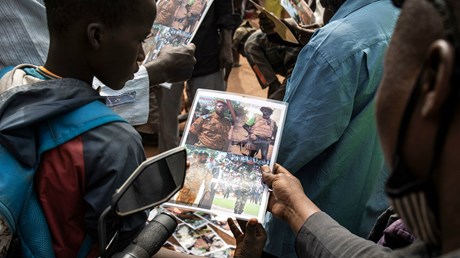Concentrated lately in the impoverished and jihadist-plagued Sahel, military overthrows disturb democratic development. Do they equally disturb believers?

There is an “epidemic” of military coups in Africa, says the head of the United Nations. The past year and a half witnessed the overthrow of governments in Mali (twice), Chad, Guinea, Sudan, and Burkina Faso. At least three additional attempts were thwarted in Madagascar, the Central African Republic, and Niger.
Averaging two per year for the last decade, this is Africa’s largest surge since 1999.
What should Christians in these nations do about it?
Abel Ngarsouledé of Chad, where roughly 45 percent of the Muslim-majority nation is Christian, is walking it through.
“It is not for me to support a military coup in my country,” said the secretary general of the doctoral program at the Evangelical University of Chad. “But if God wants to remove a king from his throne, [God] uses all the means in his power to restore his fear and justice in the land.”
When Chad’s president was killed on the battlefield last April, the army moved quickly to place his son in charge of a 15-member Transitional Military Council that would govern for 18 months, renewable once. Pledging to hold a national dialogue, invitations were sent to rebel groups, politicians, civil society, academics, and religious leaders.
Ngarsouledé accepted.
With the council now delayed until May, he serves on two committee in a process designed to lead to reconciliation, social cohesion, and new elections. There are no guarantees any of these will happen, he says, and asks for prayer.
Also deputy director of the Council of Theological Institutions in Francophone Africa, Ngarsouledé recalled that at times in Old Testament history, God used prophets or priests to depose kings. Though today prayer should be employed, ...
from Christianity Today Magazine
Umn ministry


.gif)

.gif)
.gif)
